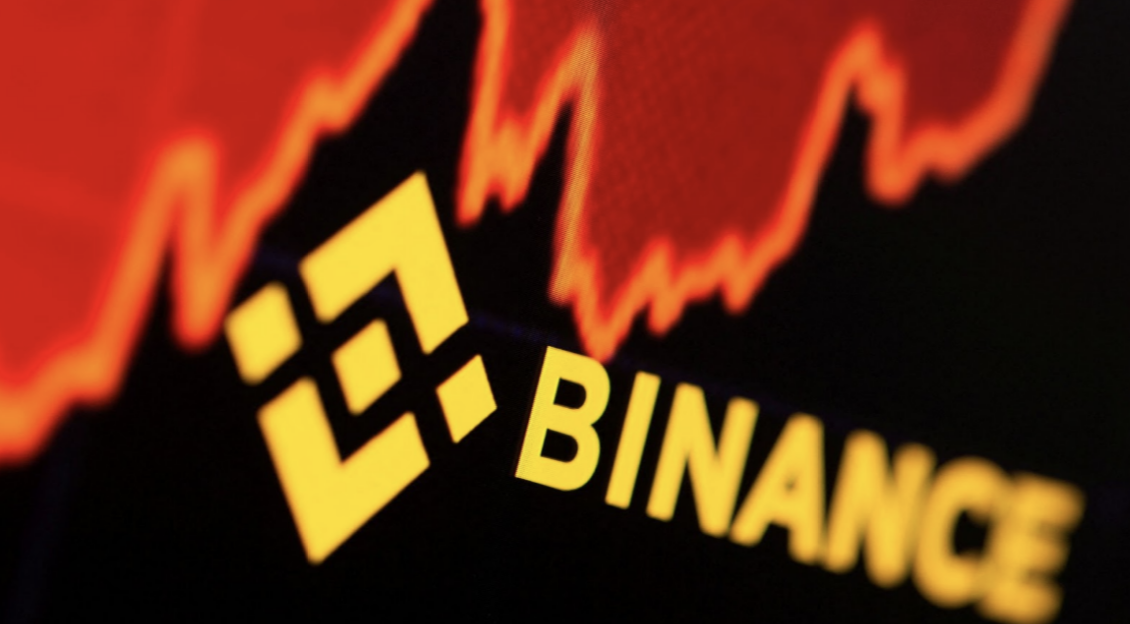US Justice Department Finds Crypto Exchange Binance Facilitated Flow of $7.8 Billion from Iranian Firms
Photo of Binance Logo. Photo by Dado Ruvic | REUTERS
Last week a US Justice Department Investigation revealed that the leading crypto exchange, Binance, has helped trade almost $8 billion worth of transactions from Iranian firms since 2018.
The investigation began as the leading crypto exchange platform Binance, boasting over 120 million users, came under scrutiny by the US Justice Department for possible money-laundering violations. Now, the exchange and its independent US entity Binance.US may be in legal trouble for violating US sanctions against Iran.
US blockchain researcher Chainalysis led the review, discovering nearly all the funds flowed between Binance and Iran’s largest crypto exchange, Nobitex. Nobitex encouraged Iranian clients to trade anonymously with the token Tron, a cryptocurrency that offers an identity-concealing feature. Data found that 75% of the funds flowing through Binance were in Tron, allowing users to curtail US sanctions on Iran.
The sanctions currently forbid US entities or nationals, including financial services, from selling goods or services to Iranian citizens, businesses and institutions. Binance is not a US-based financial service; however, it pledged to ban Iran-based users. Binance redirects American users to the crypto exchange Binance.US, which functions as a ‘fully independent entity’ from Binance, according to the latter’s CEO Changpeng Zhao. However, an October report found he operated and managed the US exchange from abroad.
The majority of the $7.8 billion from Iran flowed through Binance, but the US entity Binance.US processed $1.5 million in Iranian transactions, according to Chainalysis, revealing the exchange may have violated US sanctions. Violating US sanctions on Iran can result in fines of up to $1 million per violation and up to 20 years imprisonment for individuals involved.
A Binance.US spokesperson claimed the figure found by Chainalysis is inaccurate yet did not provide an alternative. The spokesperson also claimed Binance.US puts entities through a ‘rigorous screening process’ before permitting them to trade on the platform and that Binance.US adheres to US rules pertaining to digital exchanges.
Binance CEO Changpeng Zhao | Photo by Cryptodencia
Chinese-Canadian billionaire Changpeng Zhao founded Binance.com, and the exchange operates internationally. However, the Iranian transactions put Binance at risk of US secondary sanctions, which can bar a company’s participation in the US financial system. Secondary sanctions prevent non-US entities from conducting business with sanctioned entities or helping entities evade sanctions and embargoes.
The Iranian exchange firm Nobitex is not currently sanctioned by the US. Founded in 2017 by Amirhosein Rad, it serves as Iran’s largest crypto exchange with intentions to help Iranians invest in crypto ‘despite the shadow of sanctions,’ as per its LinkedIn page. A 2021 report revealed Nobitex processes 70% of Iran’s crypto transactions and encourages users to trade with Binance. When Tron announced its identity-concealing feature, Nobitex encouraged users to open wallets with Binance to buy Tron for its ‘high security.’
Binance increased checks on users in August of 2021; however, it still processed $1 billion worth of direct transactions from Nobitex between then and November 2022. In October 2022, $20 million of Tron flowed directly between Binance and Nobitex.
The Chainalysis report reveals that some of Nobitex’s users are sanctioned by the US Treasury for cyberattacks and ransomware. Some of these Iranians were part of the Islamic Revolutionary Guard Corps, a faction controlling armed intelligence forces and a business empire in Iran. The Iranian government finds US sanctions cruel and unjust, but Iran’s affinity for Binance may put the crypto exchange in trouble with the US.


